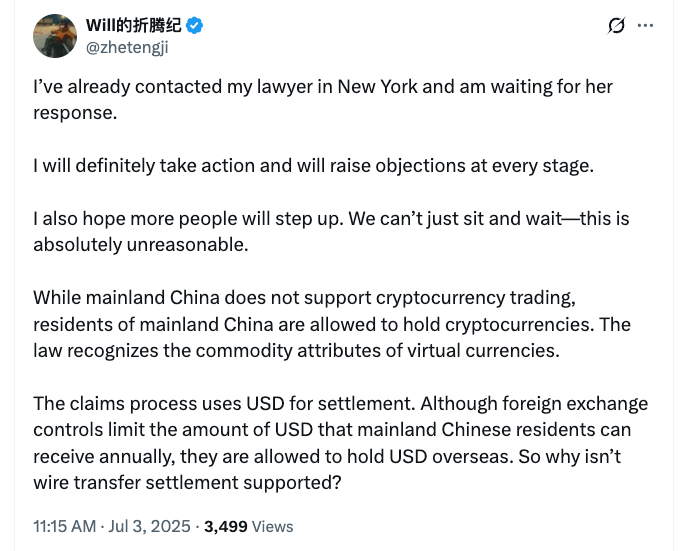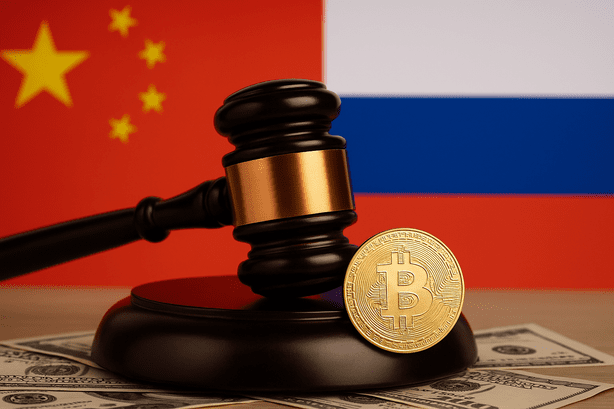The FTX estate filed a motion on July 2, 2025, with the U.S. Bankruptcy Court in Delaware, asking to pause crypto payouts to creditors in restricted countries. The motion stated that legal risks tied to digital asset regulations in certain jurisdictions could lead to violations, penalties, or criminal charges.
The motion aims to let the FTX Recovery Trust freeze distributions in 49 countries where crypto rules are unclear or restrictive. These include China, Russia, Egypt, Iran, Saudi Arabia, and Ukraine. The filing explained that sending crypto payouts to these places might breach local laws.
“Distributions made by or on behalf of the FTX Recovery Trust into jurisdictions in violation of these legal restrictions may trigger fines and penalties, including personal liability for directors and officers, and/or criminal penalties up to and including imprisonment,”
the motion read.
The court filing, published by Kroll, outlines the risks connected to foreign crypto laws and their effect on ongoing FTX bankruptcy distributions.
China’s Share Reaches 82% of Affected Claims
The FTX estate highlighted that China accounts for 82% of the value of all creditor claims from restricted countries. These claims face delays as the estate seeks legal clarity on whether payouts to China can proceed.
In the filing, the estate referenced crypto rules in Macau, where mainland Chinese authorities prohibit financial and non-bank institutions from supporting any crypto transactions. The same approach applies in Mainland China, where crypto trading is banned, though holding digital assets is not clearly outlawed.

Neighboring Hong Kong, however, has allowed crypto ETFs and other products, creating a different legal landscape. The estate did not include Hong Kong in the restricted countries list.
The estate said that all the restricted countries on the list share similar limitations or uncertainty about digital asset regulations. As a result, the FTX Recovery Trust needs court approval to pause payouts in those regions.
Temporary Freeze Until Legal Questions Are Answered
The FTX estate clarified that it is not permanently canceling payouts to FTX creditors in restricted countries. The distributions are on hold while legal teams review compliance with local laws.
“To provide clarity to the FTX Recovery Trust and its stakeholders alike, the FTX Recovery Trust has developed the restricted jurisdiction procedures to provide notice and a process for resolving the question of whether distributions will be made pursuant to the plan,”
the motion stated.
The estate wants the court to approve these procedures to protect the trust and its members from legal risks. The process allows the estate to evaluate if crypto payouts violate local bans or restrictions on digital assets.
In regions where laws remain unclear, the estate may need to delay payouts longer. However, where permitted, the trust may resume distributions as more legal information becomes available.
The list of restricted countries includes those with active bans on crypto trading, unclear legal frameworks, or limitations on cross-border crypto flows. The FTX Recovery Trust will use the procedures to determine payout status for each country listed.
Aaron Brogan, a U.S. bankruptcy lawyer and managing attorney at Brogan Law, addressed the matter in a public comment. He said:
“When it comes to token distributions in bankruptcy, there is still significant legal uncertainty, and it doesn’t surprise me that the FTX estate might not make distributions in countries where such distributions might be illegal.”
Brogan’s statement reflects the challenges involved in navigating international digital asset regulations during bankruptcy. The motion to freeze distributions aims to follow the court-approved bankruptcy plan without triggering penalties in restricted countries.
The court has not yet ruled on the motion. Until then, the FTX Recovery Trust continues to hold back distributions linked to countries listed in the July 2 filing.


دیدگاهتان را بنویسید